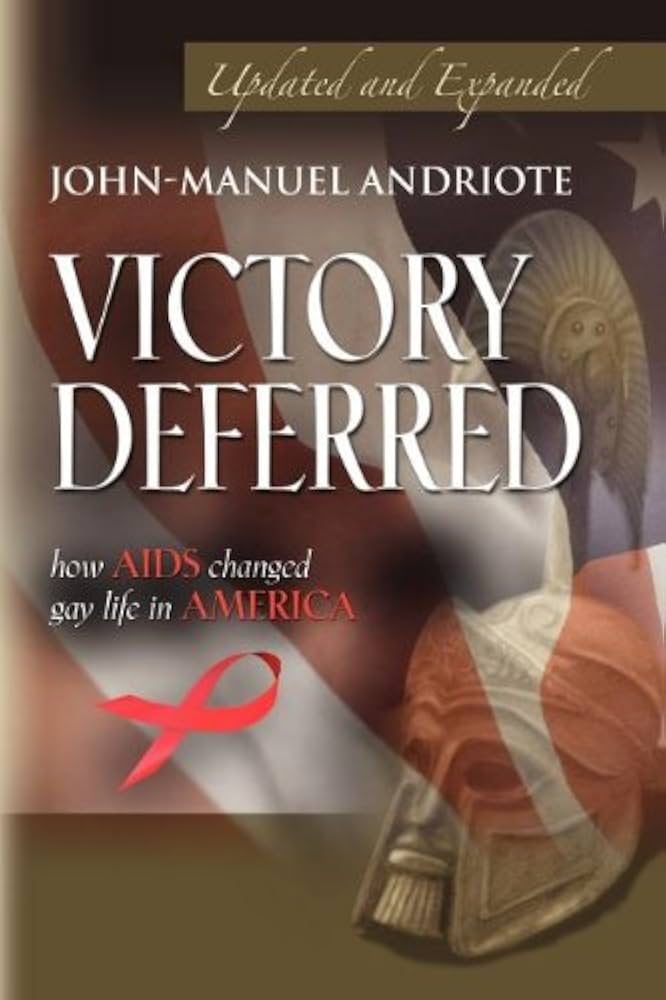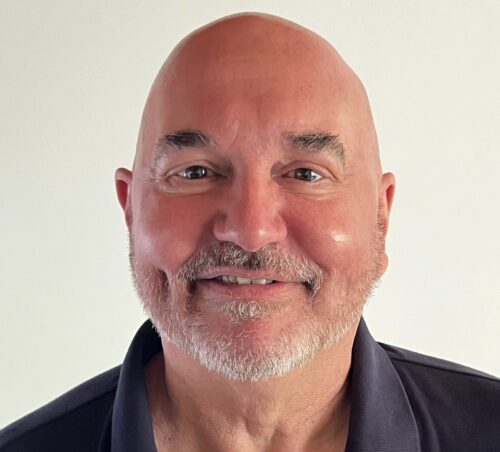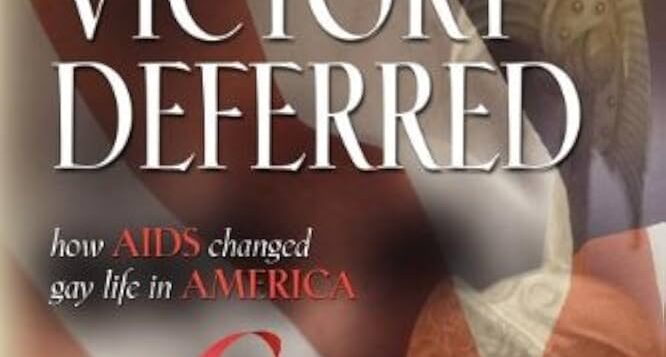
For this October’s LGBT History Month and Open Access Week, I have collaborated with a dedicated librarian at the University of Chicago Library to re-release Victory Deferred: How AIDS Changed Gay Life in America as an open access book. The theme of this year’s LGBT History Month, “Medicine: #UnderTheScope,” encourages us to celebrate and remember the contributions of gay, lesbian, bisexual and trans people in the fields of medicine and health care. Victory Deferred certainly celebrates and remembers them—and so many more.
The theme of this year’s Open Access Week (October 21-27), “Community Over Commercialism,” perfectly captures the reason I am making Victory Deferred available, free and globally, via open access:because anyone interested in HIV-AIDS, LGBT history, and American history should have access to the hundreds of accounts from community leaders and pioneers I interviewed for and cite in the book. Their experiences during a supremely challenging time offer insight and wisdom for many of the challenges we face today.As Jonathan Rauch put it in hisLos Angeles Times review ofVictory Deferred, “People who want to know how a community mobilized in the face of an unprecedented crisis will want to start here.”
Start here because the HIV-AIDS epidemic is inextricably linked to LGBT history. And Victory Deferred uniquely documents and details how community-level organizing, fundraising, protesting and lobbying in response to HIV-AIDS literally transformed the national LGBT equality movement. As historian John D’Emilio said in our interview for the book, “AIDS built the LGBT movement.”
In the quarter-century sinceVictory Deferred was as originally published, the promise of transforming HIV from a death sentence into a chronic, manageable condition was expanded further with new ways of taking the lifesaving drugs now available to treat it. Once-daily combination tablets and long-acting injectables have made treatment as simple as it has ever been. Longer-acting implants are being studied. Meanwhile, research steams ahead to discover cures and effective vaccines thanks to new vaccine technologies that advanced during the COVID-19 pandemic. By now it is well-established that “Undetectable = Untransmittable,” meaning that a medically managed, undetectable HIV viral load renders an individual unable to transmit the virus through sex. Pre-exposure prophylaxis (PrEP) also protects uninfected people from sexual infection.
And yet, long-term HIV survivors—commonly defined as those diagnosed before the 1996 introduction of combination antiretroviral therapies—face the challenges of what research is showing to be a kind of accelerated aging. Then there are the emotional scars. They run deep in the “older” gay male community who bore the harsh brunt of the “dark years” when all our friends seemed to be sick and dying at once. Aging without the friends and lovers we expected to know all our lives, deep sorrow lurks, always, just beyond our laughter. How has it impacted our lives in the twenty-first century?
October 27 will mark nineteen years since my own doctor in Washington, D.C. called to share what he called the “bad news” that I had tested HIV-positive. I am grateful to say I benefit from the tremendous advances in HIV medical treatment. I was HIV-negative while writing the original edition of “Victory Deferred” in the 1990s. Revisiting the accounts and stories I share in the book, filtering them through the experience of a man living with HIV himself, I’m struck by just how remarkable those stories are—the tales of courage, loyalty, and love in action on the frontlines of a great war against both hatred and a deadly plague—as told by the “soldiers” who fought the war while in its harshest years.
I first interviewed longtime San Francisco activist Paul Boneberg in the 1990s for Victory Deferred. When I interviewed him again in 2015 forStonewall Strong, the founding director of Mobilization Against AIDS—the first AIDS activist group anywhere—said there was only one choice for gay men in San Francisco when AIDS struck: fight or flight. “AIDS made us choose,” Boneberg said. “Most chose to stay and fight.” He added, “It is my experience that our community is heroic.”
This is precisely why I often speak of our LGBT “heroic legacy,” the stories we must hand down our generations to celebrate the brave men and women who stood up for equality, freedom, and justice when it mattered most.Victory Deferred details in its intimate firsthand accounts and national scope what those heroes in big cities and small towns across America endured and accomplished in the face of stigma and a deadly epidemic. And now anyone in the world will be able to read, free, in the new open access edition about what we endured and achieved in one of the most challenging periods in LGBT and American history.

John-Manuel Andriote is the author of Victory Deferred: How AIDS Changed Gay Life in America and, most recently, Stonewall Strong: Gay Men’s Heroic Fight for Resilience, Good Health, and a Strong Community. Andriote writes the “Stonewall Strong” blog on resilience for Psychology Today.






